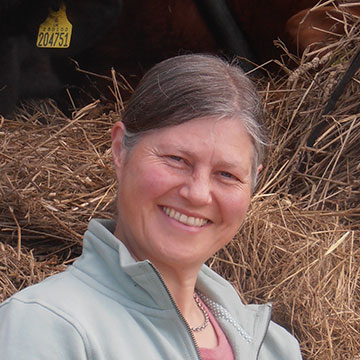Key research questions
- How can we help the sheep and goats farming industry become more sustainable and resilient?
- Meeting the protein requirements of poultry and pigs in organic systems is difficult- how can we solve this issue?
- Healthy animals underpin sustainable production systems, how can we improve animal health and welfare through mixed pastures and agroforesty?
The importance of animal husbandry
Grasslands cover around 40 percent of the earth’s surface and are both an important habitat and the third largest carbon store after wetland and forest. With sensitive management, farm animals play important roles in converting grass to products available for human consumption, in maintaining healthy pasture and soil diversity and in managing habitats.
Access to the outdoors is a cornerstone of organic livestock management and enriched and diverse landscapes (including trees and herb-rich pasture) offer animals valid choices, for example for food selection, health management and temperature regulation.
Animal requirements differ with species, age and with varying production systems. The key elements for sustainable livestock systems include appropriate breeds and breeding, nourishing pastures and feedstuffs, suitable housing and feeding systems and high levels of welfare, health and disease management. Understanding and matching the animal and its requirements within a system is a primary focus for our work.
To create resilient systems livestock cannot be managed in isolation. We integrate our research with business and markets to promote good returns to farmers. Our work is also integrated with cropping systems research as we recognise that livestock have a valuable and historical place in crop rotations, and with agroforestry through the development of silvopastoral systems.
Our research places ruminants in a central role in future sustainable farming systems and our focus is on fostering animal health and welfare in diverse, enriched environments. As a principled system, organic livestock farming aims to balance productivity with animal integrity and to facilitate natural behaviour patterns within complex systems.




